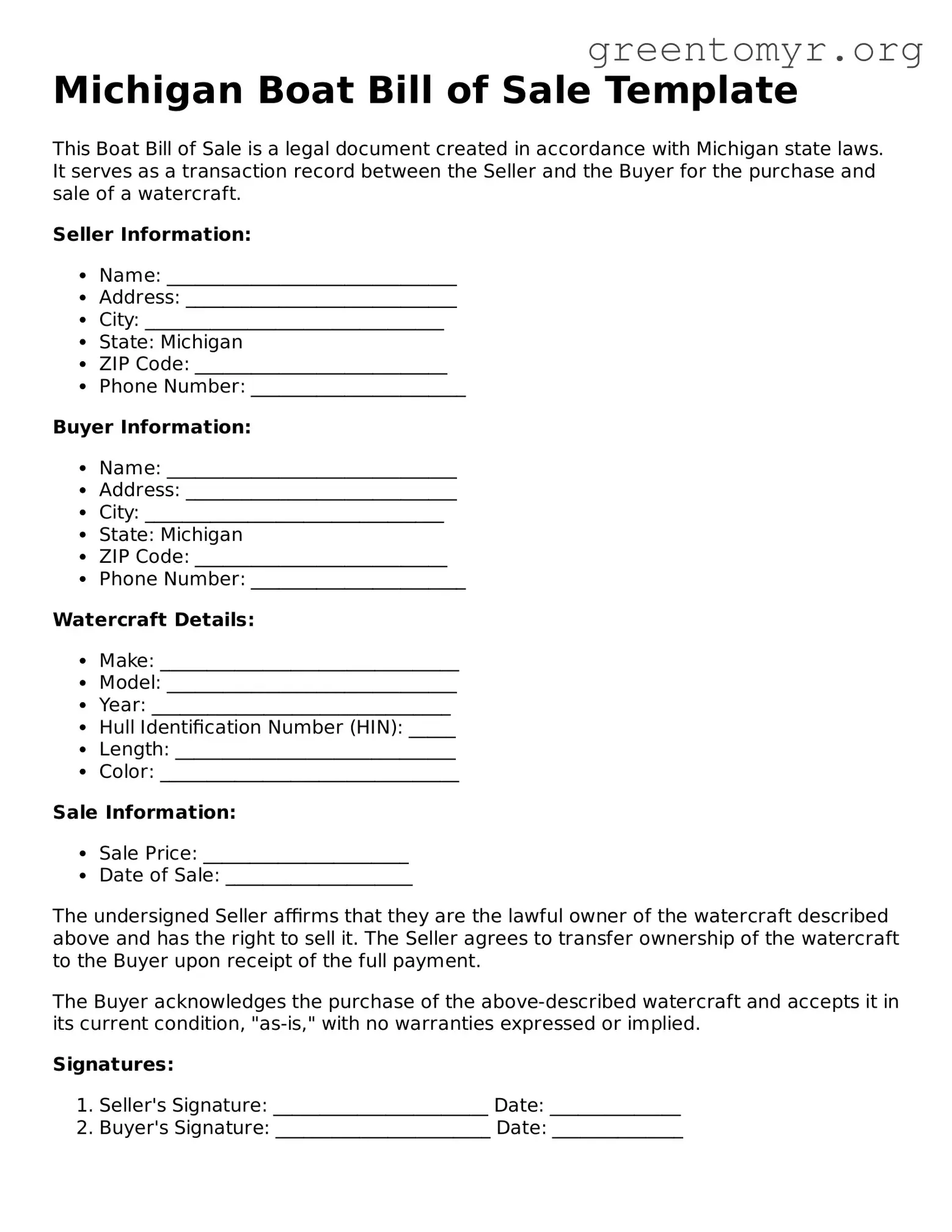Michigan Boat Bill of Sale Template
This Boat Bill of Sale is a legal document created in accordance with Michigan state laws. It serves as a transaction record between the Seller and the Buyer for the purchase and sale of a watercraft.
Seller Information:
- Name: _______________________________
- Address: _____________________________
- City: ________________________________
- State: Michigan
- ZIP Code: ___________________________
- Phone Number: _______________________
Buyer Information:
- Name: _______________________________
- Address: _____________________________
- City: ________________________________
- State: Michigan
- ZIP Code: ___________________________
- Phone Number: _______________________
Watercraft Details:
- Make: ________________________________
- Model: _______________________________
- Year: ________________________________
- Hull Identification Number (HIN): _____
- Length: ______________________________
- Color: ________________________________
Sale Information:
- Sale Price: ______________________
- Date of Sale: ____________________
The undersigned Seller affirms that they are the lawful owner of the watercraft described above and has the right to sell it. The Seller agrees to transfer ownership of the watercraft to the Buyer upon receipt of the full payment.
The Buyer acknowledges the purchase of the above-described watercraft and accepts it in its current condition, "as-is," with no warranties expressed or implied.
Signatures:
- Seller's Signature: _______________________ Date: ______________
- Buyer's Signature: _______________________ Date: ______________
This document serves as a legally binding agreement between the parties involved. Both parties should retain a copy for their records.
